Japan disaster damage: Toshiba, Fujitsu, Casio, Panasonic, more report

Dozens of electronics and technology companies with headquarters and facilities in Japan have issued initial damage reports in the wake of Friday's catastrophic earthquake and the subsequent tsunamis which resulted in major flood damage, providing the first look at the damage to the country's tech economy.
Currently, most companies are still assessing damages and promise to keep conversant with shareholders as the situation in the country is still unstable.
Intel makes another big mobile acquisition: Egypt's SySDSoft
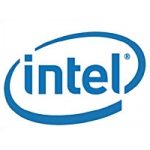
Monday, chipmaker Intel Corp. announced that its recently formed Intel Mobile Communications group has acquired "most of the assets" of privately held Egyptian communications company SySDSoft, a company whose intellectual property includes LTE Protocol Stacks for user equipment and femtocell premises equipment.
In August 2010, Intel acquired Infineon AG's wireless group for an estimated $1.4 Billion, giving the chipmaker access to a significant chunk of the global cellular baseband market. Then five months later, Intel announced the creation of its new Mobile Communications Group which would see the company working not only with its traditional x86 processor architecture, but also with the popular 32-bit ARM architecture.
How to use the Web to help Japan quake victims, track damage from afar

Friday at about 2:45pm local time (12:45am EST) Japan experienced a devastating earthquake, which was given a preliminary register of 8.9 on the Richter scale of magnitude, higher than any in this zone since the invention of the Richter Scale.
According to the US Geological Society, the location of this quake, known as the Japan Trench subduction zone, has had 9 events registering magnitude 7 or higher since 1973. The only one to approach this magnitude took place in December 1994, and was ranked as a 7.8.
Twitter aims to reclaim the experience, tightens rules for third-party apps

Popular microblogging service Twitter is clamping down on all the third-party client applications that duplicate the service's official apps, a statement from company developers said Friday.
Twitter platform lead Ryan Sarver issued a sort of "State of the Platform" announcement on Friday, which was essentially a warning for third-party Twitter client developers that Twitter intends to be the primary interface that all consumers use. Or, as Sarver put it, the "primary mainstream consumer client experience on phones, computers, and other devices." With that in mind, the Terms of Service for third-party developers has been changed.
Google lets you 'block all' search results from specific sites

Top search engine Google on Thursday introduced an experimental feature which continues its mission to chip away at undesirable search results and information from "content farms": the ability to block all results from a particular URL.
Now, when search results are returned, there is a button next to each link labeled "Block all [URLNAME] results." When clicked, that site is sent to a block list, which can be managed in the user's Google account.
Microsoft rolls out new virtualization tools for Desktop Optimization Pack
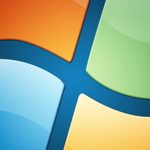
Thursday, Microsoft announced two updates to its Software Assurance Desktop Optimization Pack for enterprise Windows deployments are available immediately: App-V 4.6 SP1, and MED-V 2.0.
Microsoft Application Virtualization, or App-V, is the solution which turns software applications into centrally managed, virtualized services that don't have to be installed on client machines. With the SP1 update, Microsoft has introduced package accelerators in the new App-V Sequencer, which Microsoft has been discussing since mid-2010. Package Accelerators are files that admins can combine with install media to automatically convert applications into virtual packages. They are released 1:1 with the applications they work with, and the first accelerators will be available in early April, and will include Project, Adobe Reader, and Office 2010.
Ubuntu shedding dated 'desktop' and 'netbook' edition names
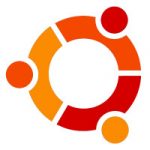
Canonical Inc. on Wednesday announced that there is really no longer a need to have a separate edition of Ubuntu specifically for netbooks and for desktops, and development of the Linux distributions will be folded into a single version of Ubuntu, known simply as "Ubuntu" for Version 11.04.
"We are going back to our roots," Canonical's Gerry Karr said on Wednesday. "From 11.04 the core product that you run on your PC will be simply, Ubuntu. Therefore the next release will be Ubuntu 11.04 and you can run that, my friend, on anything you like from a netbook to a notebook to a desktop. Ubuntu Server will be maintained as a separate product of course and named simply, Ubuntu Server 11.04."
Apple rolls out iOS 4.3 for iPhone, iPad, iPod Touch, updates Apple TV

As expected, Apple's mobile operating system received an update on Wednesday, which includes a faster Safari mobile browser thanks to an upgraded Nitro JavaScript engine; iTunes Home Sharing; enhancements to AirPlay; the ability to use the iPad side switch to either lock screen rotation or mute the audio; and the Personal Hotspot for iPhone 4.
Apple first announced these features when it introduced the iPad 2 last week, but most of the new functions were made public when the CDMA iPhone 4 launched back in January.
Government program puts tablets, netbooks in hands of 35,000 kids
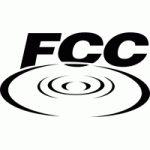
Wednesday, the FCC announced the 20 E-rate schools that will be included in the next round of "Learning on the Go" pilot programs, where public schools test how mobile wireless devices such as tablets and notebooks with mobile broadband can be employed inside and outside the classroom.
A large part of the Federal Communications Commission's National Broadband Plan is dedicated to using improved broadband connectivity to improve American education, updating the Industrial Age public school system to one suited for the Information Age. Since technology has already moved into the wireless age, the Commission began testing "Learning On-the-Go" situations last year, exploring how the E-rate program can help schools and libraries offer off-premises wireless access to the Internet.
Microsoft hints at Internet Explorer 10 previews for MIX11 in April
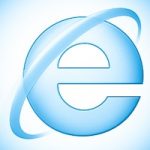
Microsoft on Wednesday confirmed that it will be releasing the complete build of Internet Explorer 9 on Monday, March 14 at 9pm Pacific (Midnight EST), using the South by Southwest Festival as a platform for the browser's worldwide introduction.
Shortly after the first release candidate of Microsoft's new browser came out on February 10th, the company sent out invitations to a SXSW event on March 14th, inviting attendees to "come celebrate the beauty of the Web." Naturally, this caused everyone to predict the 14th would be the browser's launch date.
Google releases stable build of Chrome 10 browser

In mid-February, Google released the first public beta of Chrome 10, which showed off the browser's updated V8 JavaScript engine known as "Crankshaft," it revised the settings interface, and a handful of other features. Tuesday, Google released the first stable version of Chrome 10.
"With today's stable release, even your most complex web apps will run more quickly and responsively in the browser. (For the curious, this boost corresponds to a 66% improvement in JavaScript performance on the V8 benchmark suite,)" Google software engineer Tim Steele said today.
Opera's device-agnostic app store could have widest reach of all
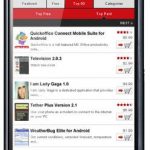
Opera Software on Tuesday launched its browser-based app store which carries applications for all of the mobile platforms that Opera Mobile and Mini support, with the exception of Apple's iOS.
Mobilestore.opera.com was built on Appia's white-label app store plaform (formerly known as PocketGear) and can be accessed by any browser on any platform.
Google Instant Preview comes to Android 2.2 and iOS 4+

Last year, Google unveiled Instant Preview a feature which lets users view a full-page preview of search results without actually navigating away from Google's results page. Today, Google has made this feature available on mobile devices running Android 2.2+ and iOS 4.0+.
Instant Preview pops up a thumbnail view of search results on the main Google results page. It works quite well in full-sized desktop browser situations, but would not work on screens between 3.5" and 4" in size.
Signatures by finger on touchscreen: still not carved in stone
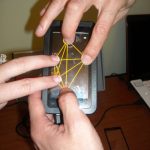
Have you noticed the paper signature has all but disappeared from transactions where goods and money are exchanged? In common day-to-day commerce, you're far more likely to sign your name on a credit card terminal's touchscreen than to put a pen down on an actual slip of paper. Likewise, if you deal in the transport and exchange of packages or heavy shipments of materials and supplies, you're increasingly likely to apply your signature only to digital signature capture pads.
Yet when it comes to legally binding contracts, similar practices have not become nearly as common. As a member of the press, I frequently get emailed nondisclosure forms or loaner agreement forms which I have to print out and physically sign, and then either fax, or re-scan and return, despite the fact that I have five touchscreen devices at my disposal at any given time, and could easily apply a digital signature.
Windows Thin PC: because budgets are shifting to tablets
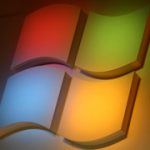
When Microsoft announced the release of Windows 7 SP1 in early February, the company also released some information about a couple of upcoming products: Windows Thin PC (WinTPC) and Microsoft BitLocker Administration and Monitoring (MBAM.)
Monday, Microsoft shared the first round of information about WinTPC, how it will fit in with volume licensing somewhere between Windows Virtual Desktop access (VDA), and Microsoft Software Assurance (SA), and why it is coming out in the first place.
Tim's Bio
Tim Conneally was born into dumpster tech. His father was an ARPANET research pioneer and equipped his kids with discarded tech gear, second-hand musical instruments, and government issue foreign language instruction tapes. After years of building Frankenstein computers from rubbish and playing raucous music in clubs across the country (and briefly on MTV) Tim grew into an adult with deep, twisted roots and an eye on the future. He most passionately covers mobile technology, user interfaces and applications, the science and policy of the wireless world, and watching different technologies shrink and converge.
© 1998-2025 BetaNews, Inc. All Rights Reserved. Privacy Policy - Cookie Policy.
